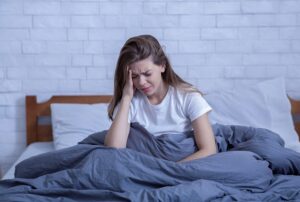
Dr. Cara Palmer, the lead author of the study from Montana State University, emphasizes the importance of understanding how sleep loss influences our emotions in a society where many people are sleep-deprived.
The study, published in the journal Psychological Bulletin, is the most comprehensive analysis of sleep and emotion research to date.
The study’s team, which included co-lead investigator Dr. Joanne Bower from East Anglia University, analyzed information from 154 studies conducted over five decades, encompassing a participant pool of 5,715 individuals.
In these studies, participants’ sleep was deliberately disrupted for one or more nights. Some participants were kept awake for extended periods, others had less sleep than usual, and some were periodically awakened during the night. Each study measured emotion-related variables, such as self-reported mood, response to emotional stimuli, and symptoms of depression and anxiety.
The results showed that extended periods of wakefulness, shorter sleep durations, and nighttime awakenings had a consistent impact. These factors contributed to a decline in positive emotions, such as joy and happiness. Simultaneously, there was an observable rise in anxiety symptoms, including an accelerated heart rate and increased worrying. Even brief episodes of sleep deprivation, such as staying awake for an hour or two beyond the regular bedtime, resulted in the noted effects.
While the study identified smaller and less consistent effects on symptoms of depression, sadness, worry, and stress, it emphasized the need for further research. The study primarily included young adults with an average age of 23, and the researchers suggest exploring how sleep deprivation affects people of different ages for a more comprehensive understanding.
The research also highlights the societal implications of sleep deprivation, as more than 30 percent of adults and up to 90 percent of teens reportedly do not get enough sleep. The research emphasizes the importance for sectors and industries susceptible to sleep deprivation, like pilots, first responders, and truck drivers, to implement policies prioritizing sleep. These policies should aim to protect against potential risks to daytime performance and overall health.